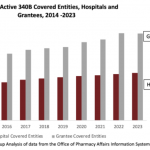Statins Can Modestly Reduce Cardiovascular Events in Later Old Age
Therapies aimed at lowering serum LDL cholesterol levels have shown to modestly reduce the risk of cardiovascular events in individuals with elevated serum LDL cholesterol. One of the contributing factors to cardiovascular events is the presence of fatty plaques in blood vessel walls, which are promoted by higher LDL cholesterol levels over time. While statins and other LDL-lowering approaches can slow down the growth of plaque and make it more stable, they may not significantly regress existing plaque. The average plaque reduction reported in studies is minimal, and the risk reduction in cardiovascular events is limited, emphasizing the need for better therapies in this area.
Recent research has provided comprehensive evidence on the benefits of statin use in elderly patients, showing a significant relative risk reduction in cardiovascular diseases (CVDs) for individuals aged 75 and above without additional safety concerns. Effective management of high cholesterol is crucial in preventing CVDs, especially in aging populations where the burden of CVD is higher. Despite the longstanding use of statins to improve lipid profiles and reduce CVD risk, there has been limited consensus on their use for primary prevention in older patients according to international guidelines.
A study analyzing electronic medical records of older individuals in Hong Kong with suboptimal lipid levels and high-risk conditions revealed that continuous statin therapy resulted in a 21% reduction in relative risk and a 5% absolute risk reduction in CVDs over five years for those aged 75-84. The reduction was even more substantial for individuals aged 85 and above, with a 35% relative risk reduction and a 12.5% absolute risk reduction. Importantly, no increased risk of major adverse events was associated with statin use in this population.





